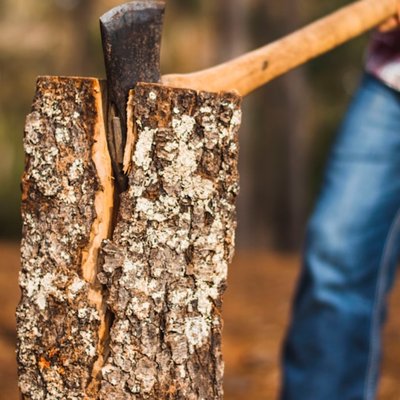rust(
ruhst
)A noun is a word referring to a person, animal, place, thing, feeling, or idea (e.g., man, dog, house).
1. (oxidation)
b. la herrumbre (F)
(f) means that a noun is feminine. Spanish nouns have a gender, which is either feminine (like la mujer or la luna) or masculine (like el hombre or el sol).
The key I use all the time looks like silver, and the one I don't use is covered with rust.La llave que uso constantemente luce como plata, y la que no se llenó de herrumbre.
2. (color)
a. el color óxido (M)
(m) means that a noun is masculine. Spanish nouns have a gender, which is either feminine (like la mujer or la luna) or masculine (like el hombre or el sol).
She bought a rust blouse.Se compró una blusa color óxido.
b. el color herrumbre (M)
(m) means that a noun is masculine. Spanish nouns have a gender, which is either feminine (like la mujer or la luna) or masculine (like el hombre or el sol).
They painted the garden fence rust.Pintaron la cerca del jardín color herrumbre.
c. el color ladrillo (M)
(m) means that a noun is masculine. Spanish nouns have a gender, which is either feminine (like la mujer or la luna) or masculine (like el hombre or el sol).
Some say his hair is red, others say gray, but it looks like rust to me.Algunos dicen que su cabello es rojo, otros dicen gris, pero a mí me parece color ladrillo.
d. el color teja (M)
(m) means that a noun is masculine. Spanish nouns have a gender, which is either feminine (like la mujer or la luna) or masculine (like el hombre or el sol).
She is wearing rust lipstick.Está usando lápiz labial color teja.
e. el color orín (M)
(m) means that a noun is masculine. Spanish nouns have a gender, which is either feminine (like la mujer or la luna) or masculine (like el hombre or el sol).
She uses rust-colored clay to create ceramic bowls.Usa barro de color orín para hacer cuencos de cerámica.
3. (botany)
a. la roya (F)
(f) means that a noun is feminine. Spanish nouns have a gender, which is either feminine (like la mujer or la luna) or masculine (like el hombre or el sol).
Researchers are working to develop a rust tolerant coffee plant.Los investigadores están trabajando para desarrollar una planta de café tolerante a la roya.
An intransitive verb is one that does not require a direct object (e.g., The man sneezed.).
A transitive verb is a verb that requires a direct object (e.g., I bought a book.).
5. (to oxidize)
a. oxidar
The garage got flooded and the water rusted the circuits.La cochera se inundó y el agua oxidó los circuitos.
Examples
Phrases
Machine Translators
Translate rust using machine translators
Conjugations
Other Dictionaries
Explore the meaning of rust in our family of products.
Random Word
Roll the dice and learn a new word now!
Want to Learn Spanish?
Spanish learning for everyone. For free.























